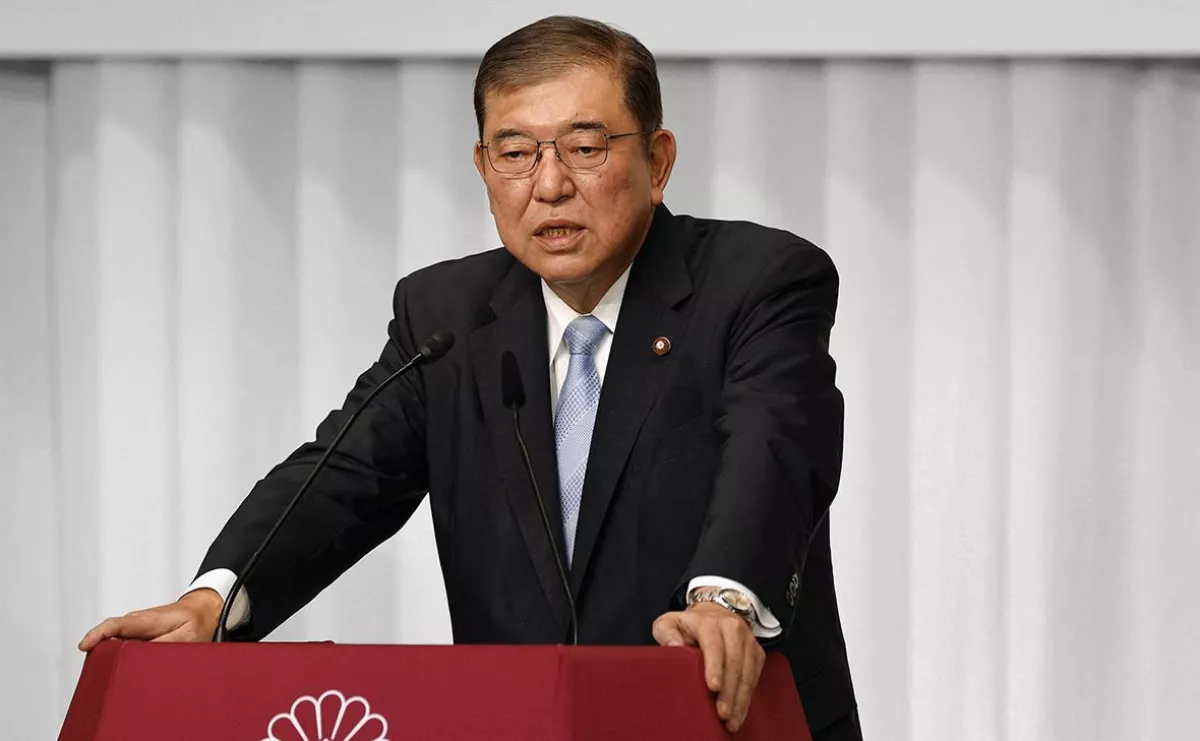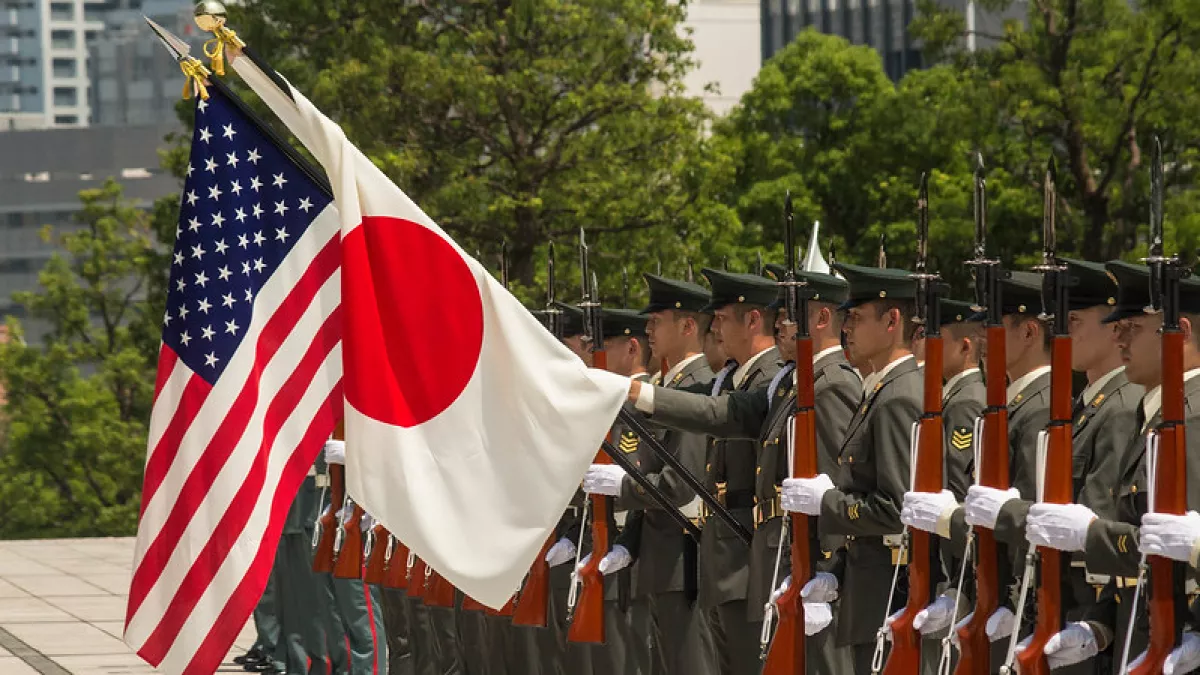Japan and the "Asian NATO" Ambitions and regional security challenges
Recent reports from various media outlets suggest that Japan's Liberal Democratic Party (LDP), under the leadership of newly appointed Prime Minister Shigeru Ishiba, is gearing up to explore the concept of an "Asian NATO." The initial step in this direction could involve the formation of a dedicated body within the ruling party to advance the idea.
This development aligns closely with Ishiba's campaign priorities, which prominently featured plans to enhance Japan's defence capabilities, strengthen regional collective security, and establish a regional equivalent to NATO. Ishiba elaborated on this vision in a widely-discussed article published in September, where he drew parallels between the current crisis in Ukraine and potential future scenarios in Asia.
In his analysis, he warned that "Replacing Russia with China and Ukraine with Taiwan, the absence of a collective self-defence system like NATO in Asia means that wars are likely to break out because there is no obligation for mutual defence," could serve as a catalyst for future conflicts. He argued that the lack of mutual defence commitments in the region creates a dangerous security vacuum, underscoring that "the creation of an Asian version of NATO is essential to deter China."

In this context, while updating the adoption of the "National Security Legislation," Ishiba highlighted the factors of QUAD (the United States, Japan, Australia, and India) and AUKUS (Australia, the United Kingdom, and the United States), adding the aspect of security cooperation between Washington, Tokyo, and Seoul, which he described as "bringing the bilateral alliances closer to a real trilateral alliance." Referring to the formed alliance between Russia and North Korea, he identified deterring the nuclear alliance of China, Russia, and North Korea as the most critical goal of the "Asian version of NATO." This includes considering the possibility of joint use of nuclear weapons with the US or introducing nuclear weapons into the region.
Advocating for the Japan-US alliance to become equivalent to the alliance between Washington and London, Ishiba underscored the necessity for Tokyo to develop its "own military strategy." This strategy would enable the construction of a "security system that can protect its own nation by itself " while actively contributing to the peace and stability of the Indo-Pacific region (IPR) " based on the Japan-US alliance."
In this context, it is hardly surprising that shortly before being elected Prime Minister of Japan, Ishiba visited Taiwan. Following this, during his recent meeting with the Japanese Prime Minister at the APEC Summit in Lima, Chinese President Xi Jinping expressed hope for establishing Tokyo's correct understanding of the direction of China-Japan relations, including such a fundamental issue as Taiwan. To achieve this, he emphasized the need for a proper definition of bilateral relations from both strategic and holistic perspectives.
Xi Jinping's remarks came against the backdrop of a joint statement adopted in Peru by the United States, South Korea, and Japan. This statement outlined the maintenance of peace and stability in the Taiwan Strait through the peaceful resolution of disputes between the two sides of the strait as an essential condition for ensuring security and economic prosperity in the Indo-Pacific region.
Thus, even from the above information, it is clear that the situation in the Indo-Pacific region is, to put it mildly, tense. Indeed, at his first press conference after being elected Prime Minister, Ishiba emphasized that he did not envision implementing the idea of an Asian NATO merely because he now leads the Japanese government, stating instead that he sought an active discussion of this matter among like-minded individuals.
However, the plans to establish a special structure within Japan's ruling party to effectively promote this initiative indicate the Prime Minister's serious approach to the issue. Nevertheless, several sources have referred to a statement by Takeshi Iwaya, Ishiba's Minister of Foreign Affairs, who called the topic under discussion "an idea for the future," as the creation of a NATO-like alliance in Asia is currently problematic. He emphasized that it is more important to focus on building a multi-layered network of relationships with like-minded countries and allies.

In this regard, an interesting perspective was offered by Daniel Kritenbrink, US Assistant Secretary of State for East Asian and Pacific Affairs. Even before Ishiba became leader of the LDP, Kritenbrink stated that it was premature at this stage to discuss collective security in the region in the format outlined by the party leader, let alone more formal institutions in this direction. He emphasized that a more significant priority for the Indo-Pacific region lies in focusing on maintaining the existing regional architecture while further developing a network of formal and informal relationships.
During a subsequent phone conversation between Ishiba and Donald Trump, following Trump's victory in the US presidential elections, the two leaders limited themselves to affirming their readiness to elevate the Tokyo-Washington alliance to new heights.
At the same time, within the context of the discussed topic, a significant portion of Japanese experts highlights the "lack of unity" within the ruling party, particularly pointing to the influence of former Prime Minister Taro Aso and his supporters. Naturally, the role of the Democratic Party for the People (DPP), which significantly increased its seats in the House of Representatives during the last elections, cannot be overlooked. In this regard, some analysts go so far as to predict a short tenure for Ishiba as Prime Minister, suggesting that the real test will come after the upcoming House of Councillors elections in the summer of 2025.
Additionally, Ishiba and over ten members of the Japanese government remain on Russia's sanctions list, which includes a ban on entering Russian territory. However, the aspect of Russia-Japan relations is, of course, a separate matter altogether.








